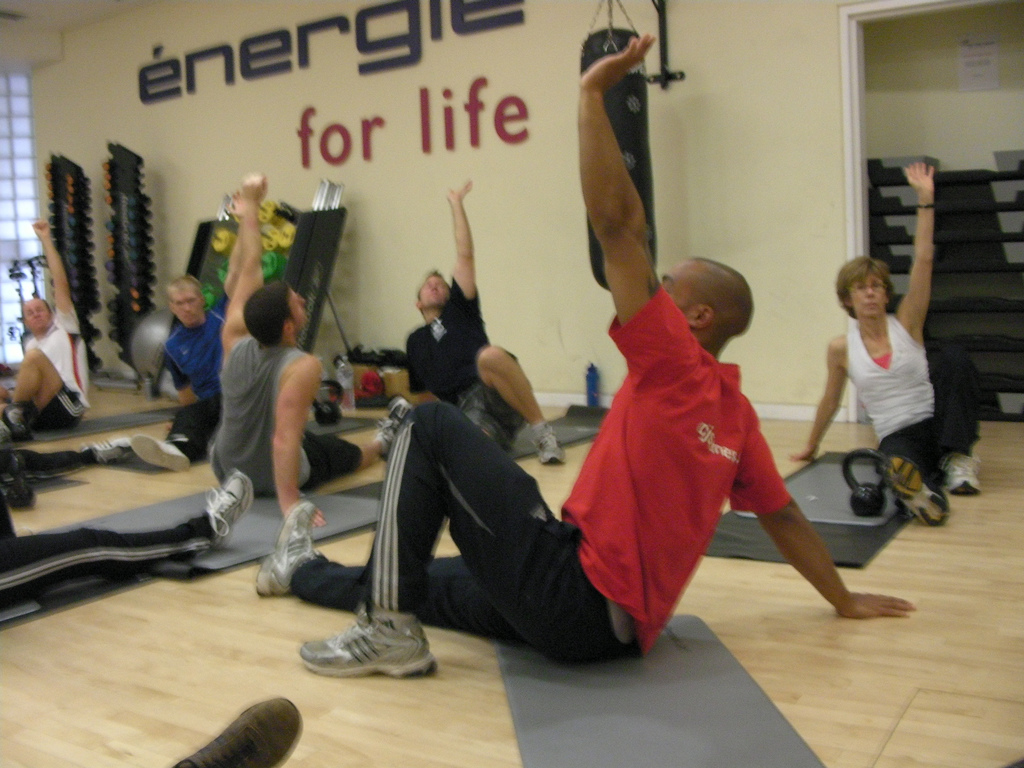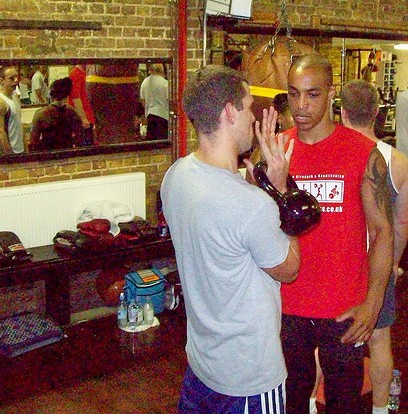In the first two articles, we covered a broad overview of how to become a personal trainer, then brushed on which prospective employers require which certification. I felt it was important to address both points before going any further, because there are a lot of people in this industry ready to take your dollars in exchange for a certificate or training course, and you want to have a “game plan” hashed out and know exactly which “tools” will help you get there most optimally before you start spending your hard-earned cash.
So, just to recap…
1. Read the first two articles I’ve linked to in the first paragraph!
2. Talk to trainers/coaches you know, especially those whose careers you want to emulate. Even if the specific certification requirements have changed since they began (and you can use this site as a resource to see if they have), get as much info from these folks as you can – most I’ve met are enthusiastic to help others with a passion for strength and conditioning get into the industry – before deciding which path to take.
Once you’ve done that, you can narrow which trainer certification to target. With that in mind, let’s delve in.
There are purportedly over 30,000 certifications globally (1), but I wouldn’t waste your time with any other than the four principal nationally-recognized agencies: the National Academy of Sports Medicine, – NASM, the Amreican College of Sports Medicine – ACSM, the National Strength and Conditioning Association – NSCA, and the American Council on Exercise – ACE.
I’ll try to add-to and aggregate what you’re likely to find on the web in two-hours-of-searching into a single resource below, and go one step further and cross-reference the agencies with the data in my previous article to give you an idea at-a-glance with which potential employers each certificate will help you gain employment.
National Academy of Sports Medicine – NASM
Who requires it?
Town Sports (unless you’ve got a BA in some exercise science), Gold’s requires it or any of the other 3, and Equinox doesn’t require it but it helps.
What distinguishes it?
The NASM has been around since 1987, and sees itself as the “gold standard” for training certification, like a muscle-bound GMAC (Graduate Management Admissions Council, the gatekeepers to business school) or College Board (who, of course, administers the infamous SAT). Its version is the CPT exam. The smart folks at NASM have moved the organization to be a sort of “one-stop-shop”, offering test prep and exam registration in a single package.
Cost – $699-1999
Unlike the GMAT or SAT, you can’t register for just the CPT exam – rather you purchase one of several “packages”, that include exam, books, and varying degrees of prep assistance. At the low end is the “self study” package, which costs $699 and includes the exam itself and textbook, online study materials (similar to those Kaplan or GMAC supplies for GMAT-takers), and “flashcard bundle”.
At the high end is the “associate personal trainer experience”, which includes all the basics, plus a live workshop (which starts at $899), the CPT “eTeach” program (which starts at the $999 price point), a free resest and “60-day job guarantee” (which starts at $1199), and the “premium” selling-point, the “associate personal trainer experience”, which, according to the literature, is kind of a “medical residency” for new trainers.
If you’ve read other parts of this site you’re probably already thinking critically about which elements you really need, and which you don’t. How much is the “associate trainer experience” worth to you? Can you get that experience elsewhere, for-instance a trainer buddy willing to let you “shadow” him/her, or even to “take the reins” with some of his/her clients under supervision? I did.
What I’m really interested in is this “60-day job guarantee”, so I “asked around”, so you don’t have to.
The Terms and Conditions state that NASM offers to refund the cost of the exam and prep program if you don’t secure a job within 60 days of passing the exam. The caveats are, 1) this only applies to the specific NASM prep programs for which it’s offered, and 2) you have to prove that you applied for at least 5 trainer jobs in those 60 days (they have the right to request evidence) and met the criteria for those positions.
Also, it used to be 90 days. What this means is that shortening it to 60 days provided a boost in enrollments sufficient to cover the cost of extra refunds, in cold business metrics. The “money back guarantee” is a tried-and-true close-booster for sales, and it works partly because most people don’t avail themselves of it. Still, NASM must have some metrics indicating the overwhelming majority of its “graduates” secure employment in 60 days or less, and that’s a strong endorsement of the program, whether you opt for the “money back” guarantee or not.
Amreican College of Sports Medicine – ACSM
Who requires it?
Gold’s, Town Sports (unless you’ve got a BA in some exercise science), and any gym that requires one of the four major certifications. Equinox, though they don’t require it (partly because they have their own).
What distinguishes it?
Unlike NASM, which sees itself as the College Board of training, ACSM is more like the the “birdwatching club”. It’s a subscription membership organization, whose touted benefits include continued education and networking. Its doors are open to physicians, academics, and scientists (those are some overlapping categories;), in addition to yoked-up drill-sergeants-of-pump. In addition, ACSM offers several different types of certs – Personal Trainer or Group Exercise Instructor (both useful, in certain scenarios, to readers of this site), and Health Fitness Specialist.
Cost – $279 for non-members, $219 for members, $150 for a re-test
Soooo – that’s a huge price difference with the NASM CPT. In my research for this site, I’ve found the ACSM certification is seen by many trainers are the “gold standard” (2), a more demanding exam that certifies trainers to higher standards. Still, the NASM is seen as the most comprehensive “overview” for novice trainers, providing a far broader base, and acquainting them with techniques most likely to work with middle-aged, sedentary adults, which is why corporate gyms who make their money off the “New Year’s Resolution” crowd sometimes prefer it. (3)
Still, it’s useful to keep in mind that for most trainer jobs, any certification from one of these 4 will do. Choosing between NASM and ACSM becomes a matter of how much hands-on help you want to pay for. NASM prides itself on its end-to-end “career placement”, but charges a pretty-penny, whereas ACSM is content to administer the (more demanding?) test at relatively low cost. (They do offer study materials – a complete study kit lists for $139.99.)
National Strength and Conditioning Association – NSCA
Who Requires it?
As above, any gym that requires a CPT will accept NSCA’s CPT. Unless your gym asks for a particular cert by-name, if they require a CPT, any of these agencies will suffice. The CSCS certification I discuss below is higher-prestige, and may help obtaining coaching positions that deal with high-performance athletes.
What distinguishes it?
NSCA provides their own CPT, but they also offer the CSCS (“Certified Strength and Conditioning Specialist”) certification you’ve probably seen next to the names of some top strength coaches. In order to take the CSCS, you’re required to have a 4-year college degree or be enrolled in your senior year at an accredited institution. (4) NSCA certification is reputed to be more athlete-specific than NASM, which is targeted toward the training of “average folks”. Remember the first article on this site? If your goal is to be a strength coach for a college sports team, this might be a good certification to look into.
Cost – See below
For the CPT:
-$370 for the paper exam for non-members, provided they register early ($405 if they don’t), ($235 and $270, respectively, for members).
-$420 for non-members for the computer-based test, $285 for members.
For the CSCS:
-$395 and $430 for the paper exam for non-members, depending on early or late registration ($260 and $295 for members).
-$445 for non-members and $310 for members for the computer test.
American Council on Exercise – ACE
Who requires it?
Gold’s, Town Sports (unless you’ve got a BA in some exercise science), and any gym that requires one of the four major certifications.
What distinguishes them
ACE is a non-profit, and say on their site, “ACE is not guided by profit or publicity.” Like NASM, ACE wants you to buy their training materials “bundles”, which range from $499 to $699, and all offer the study guide (while the premium options offer free retests and video lectures). In the interest of full-disclosure I should say that in my research I discovered that many trainers have a “mixed” opinion of ACE compared to other certifications. As elsewhere on this site, I’d recommend you speak to several trainers you trust. (5) (“It all depends on your goals,” is a common refrain.)
Cost – $399 for the exam only, $499-699 for all-inclusive test-prep packages.
So there you have it
As much useful information on the four major certification agencies as I could assemble in one easy-to-read article. Looking over the data, I believe there are clear “standouts” for each career path. One seems best for end-to-end basics if you’re a novice, one seems best if you’re already an expert and want a sterling certification to hang on your wall or include on your resume, and one seems best if you have some expertise and want to focus on coaching other athletes.
I’ll leave that for you to decide.
See you soon, and happy hunting!
Sources

